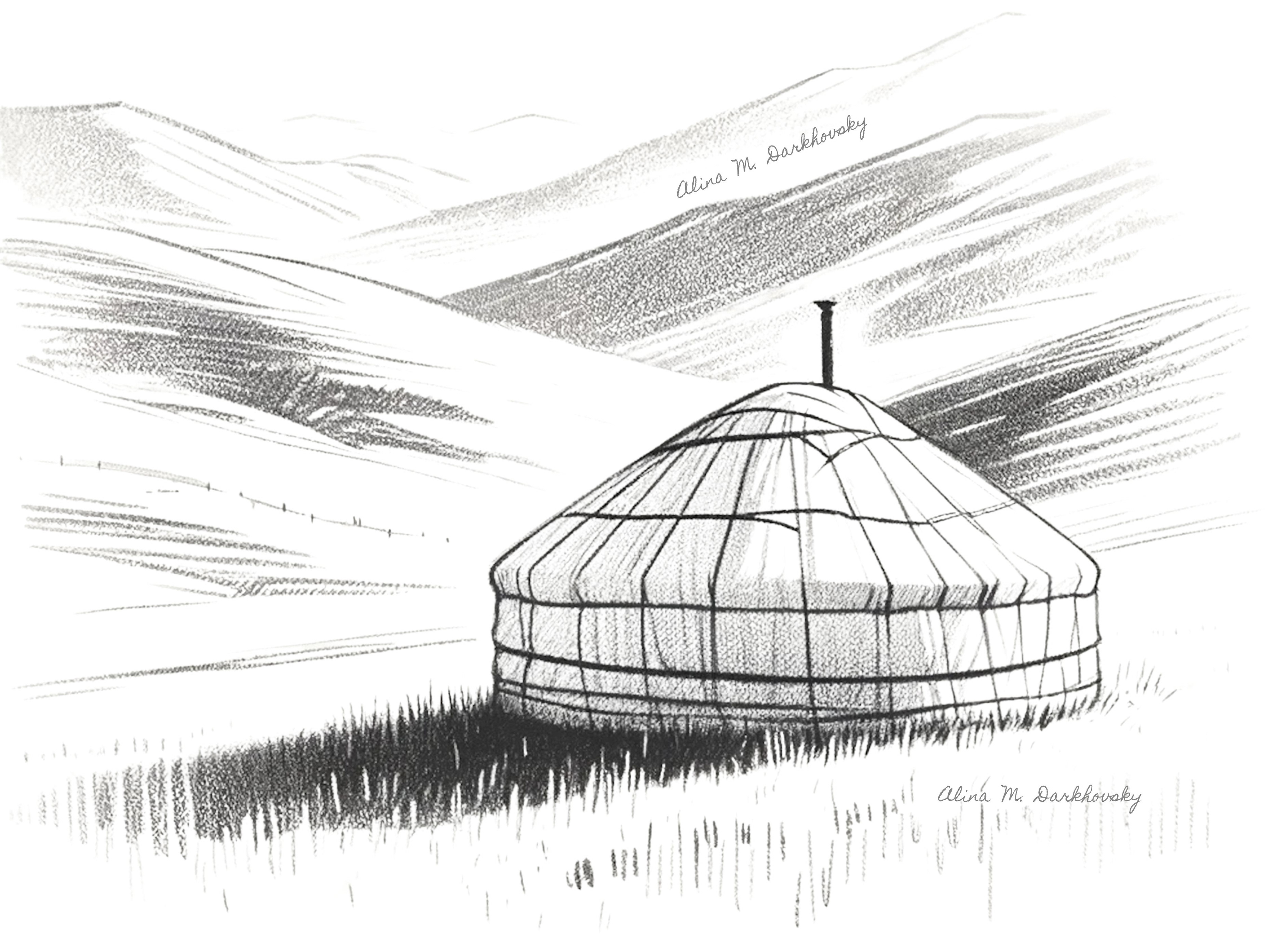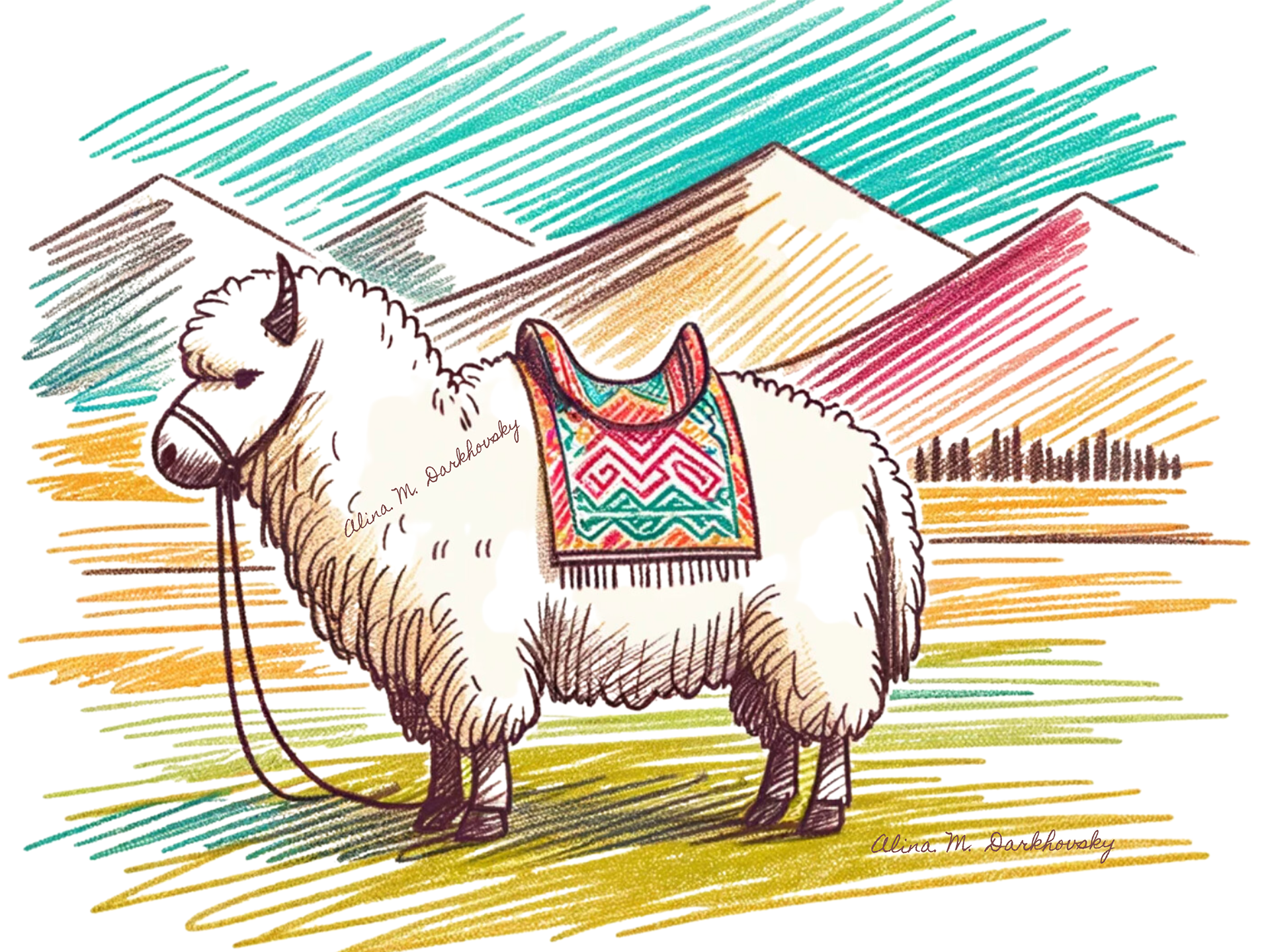C/2023 A3 (Tsuchinshan–ATLAS)
On October 15, 2024, I had the chance to capture something extraordinary, a glimpse of Comet Tsuchinshan-ATLAS as it made its close pass by Earth. This comet, originating from the distant Oort Cloud, takes about 80,000 years to complete its journey around the Sun. To put that in perspective, the last time it passed through the inner solar system, early humans were just figuring out how to use fire.
What made this even more special was that Comet Tsuchinshan-ATLAS was one of the brightest comets seen in nearly three decades. With no special equipment at hand, I used my phone to quickly capture the moment, a glowing streak cutting across the sky. While the image wasn't perfect, it reminded me of how rare this opportunity was. After all, it's not every day you get to see something that won't return for tens of thousands of years, if ever.
The comet's tail was particularly striking, and as it traveled closer to the Sun, its long dust tail became more dramatic, offering a beautiful sight even to the naked eye. This event gave me a new perspective on photography and life itself, reminding me that some of the most breathtaking moments are fleeting and unexpected.
This experience encouraged me to embrace those spontaneous opportunities, whether it's in the natural world or the vastness of the cosmos. Comet Tsuchinshan-ATLAS was a reminder that the universe holds wonders we may never see again in our lifetime, and sometimes, all you need is a bit of luck and a clear night sky.
October 18, 2024. Another go at the comet. This time with the ocean as my witness. I set the tripod on the clifftop grass, waiting for the wind to hold its breath and the sky to deepen to ink. In the dark, my eyes saw a smudge; my camera saw a masterpiece: a clean line of an ion tail and the soft bloom of the dust fan. It's a humbling kind of magic, revealing a universe hidden in plain sight, isn't it?
Did you know?
Redwood bark grows nearly a foot thick, quietly shielding these giants from fire and pests—nature's careful design, sculpted through centuries to endure.
Redwood bark grows nearly a foot thick, quietly shielding these giants from fire and pests—nature's careful design, sculpted through centuries to endure.
There's a certain magic that washes over you when you step into a redwood forest. It's not merely the immense height though that's breathtaking. It's the feeling of being small and connected to something enduring. I'll never forget the first time I stood beneath a redwood, my neck craned upwards, trying and failing to fully grasp its astonishing scale. It felt like stepping into another world, a quiet cathedral of green, sunlight filtering gently through the canopy in delicate, golden shafts.
It's more than just a visual experience, though. It's the scent of damp earth and redwood bark, the cool, humid air, the quiet rustle of needles overhead. It's the feeling of time slowing down, of worries melting away. And you're reminded there's something larger than daily routines, something that has stood for centuries through storms and seasons. Photos and words can catch an echo of it, but standing beneath these giants has a depth of its own. It's an experience that quietly but powerfully shifts your perspective, reminding you that life's most impactful moments often unfold in the stillness of old-growth forests, places where time itself seems to stand watch. The immense scale and timeless beauty of redwoods inspire awe, quietly reminding us the world still holds magic.
If you're looking for that feeling, each grove offers its own way in.
Muir Woods invites quiet focus beneath gently swaying branches. Redwood National Park pairs ancient trees with dramatic ocean cliffs. Humboldt's Avenue of the Giants carries you through a calm, glowing corridor. Jedediah Smith follows clear, serene rivers. Prairie Creek’s Fern Canyon feels lush and a little otherworldly. Big Basin, recovering from wildfire, shows steady resilience. Henry Cowell's welcoming trails are ideal for families. Armstrong Redwoods offers cool, shaded paths for thoughtful walks. Montgomery Woods brings true seclusion beneath towering trunks. Reinhardt Redwood Regional Park is an easy, in-the-city reset.
Come for the view. Leave with perspective. The redwoods do the rest.
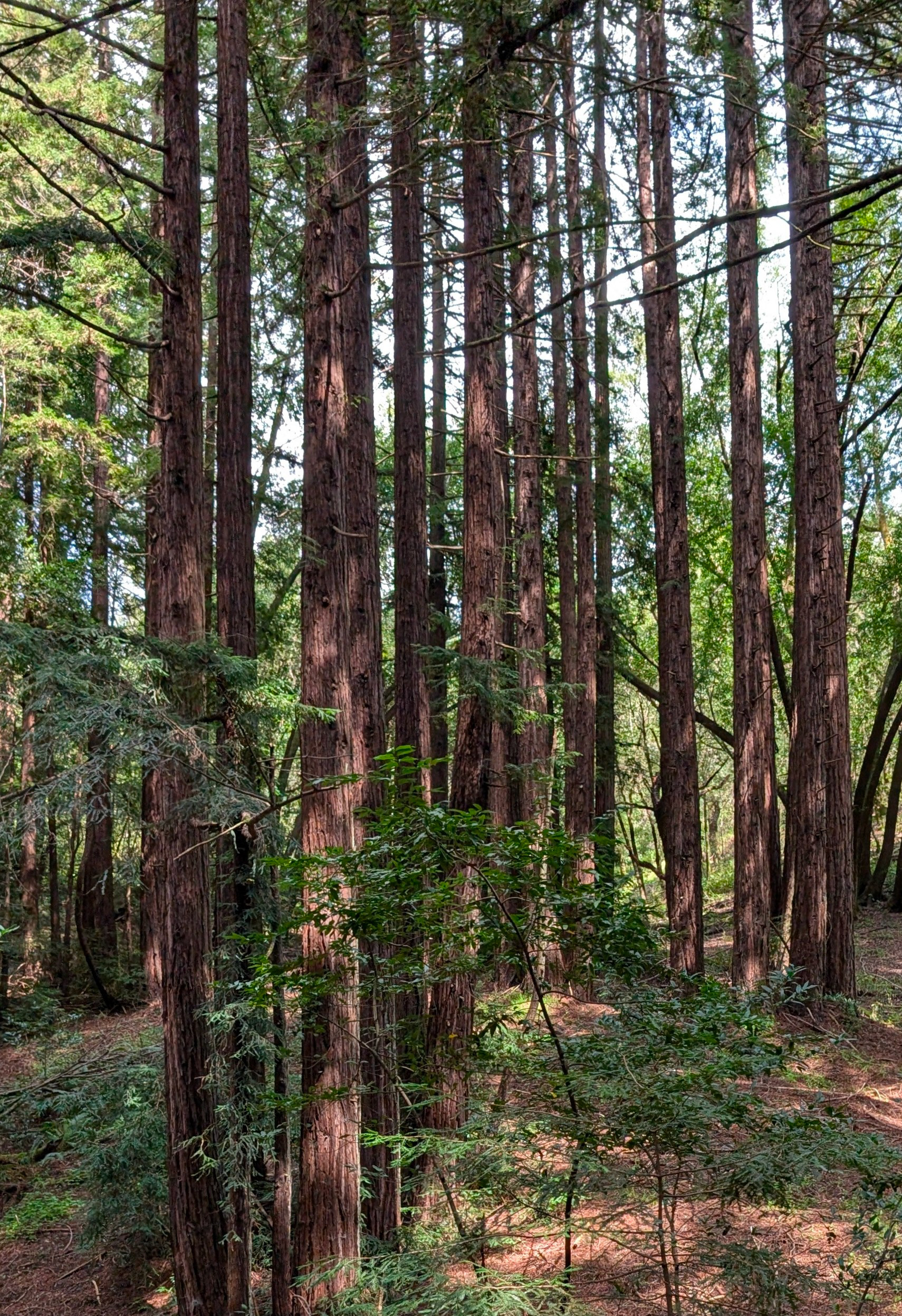
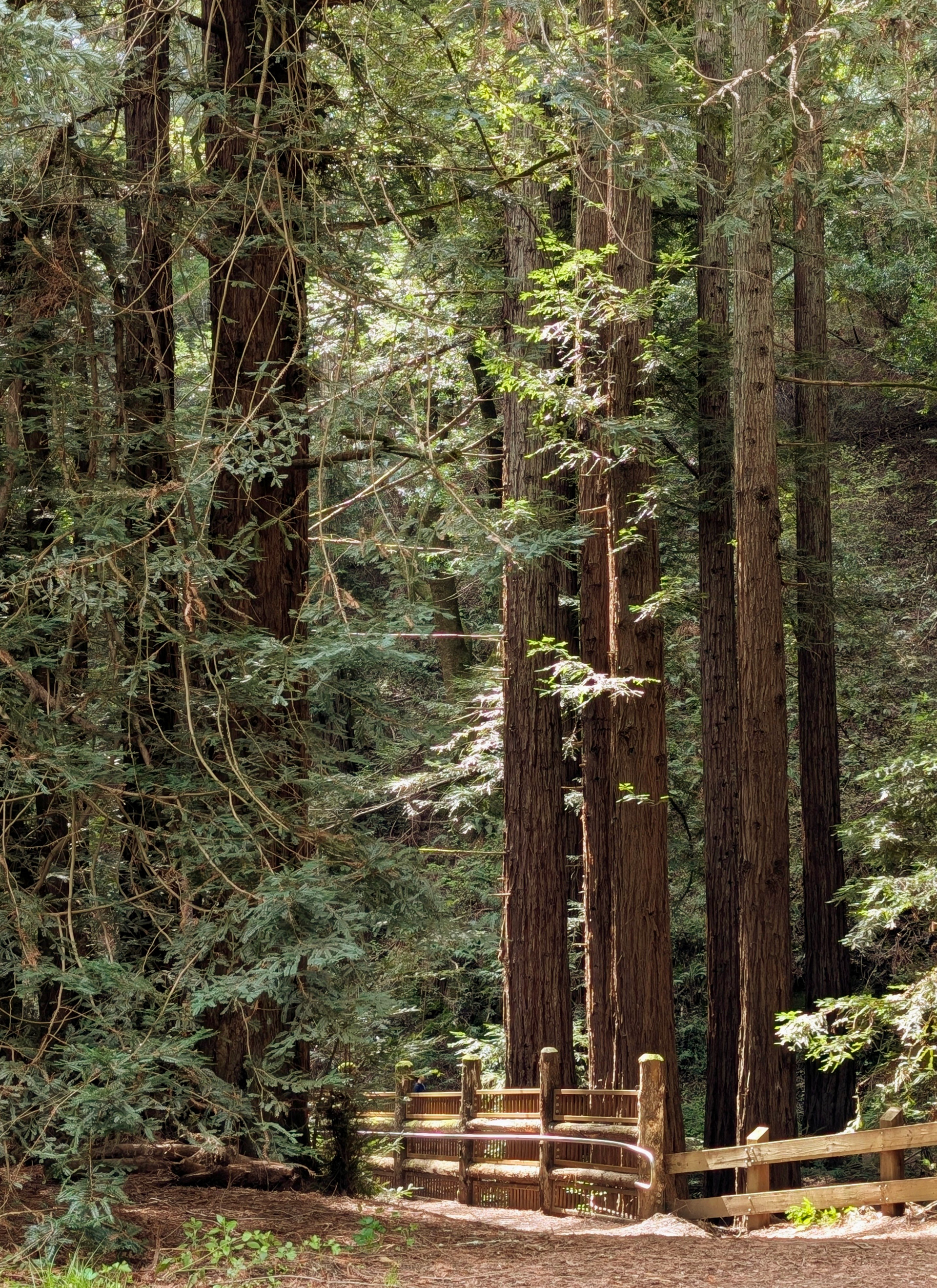
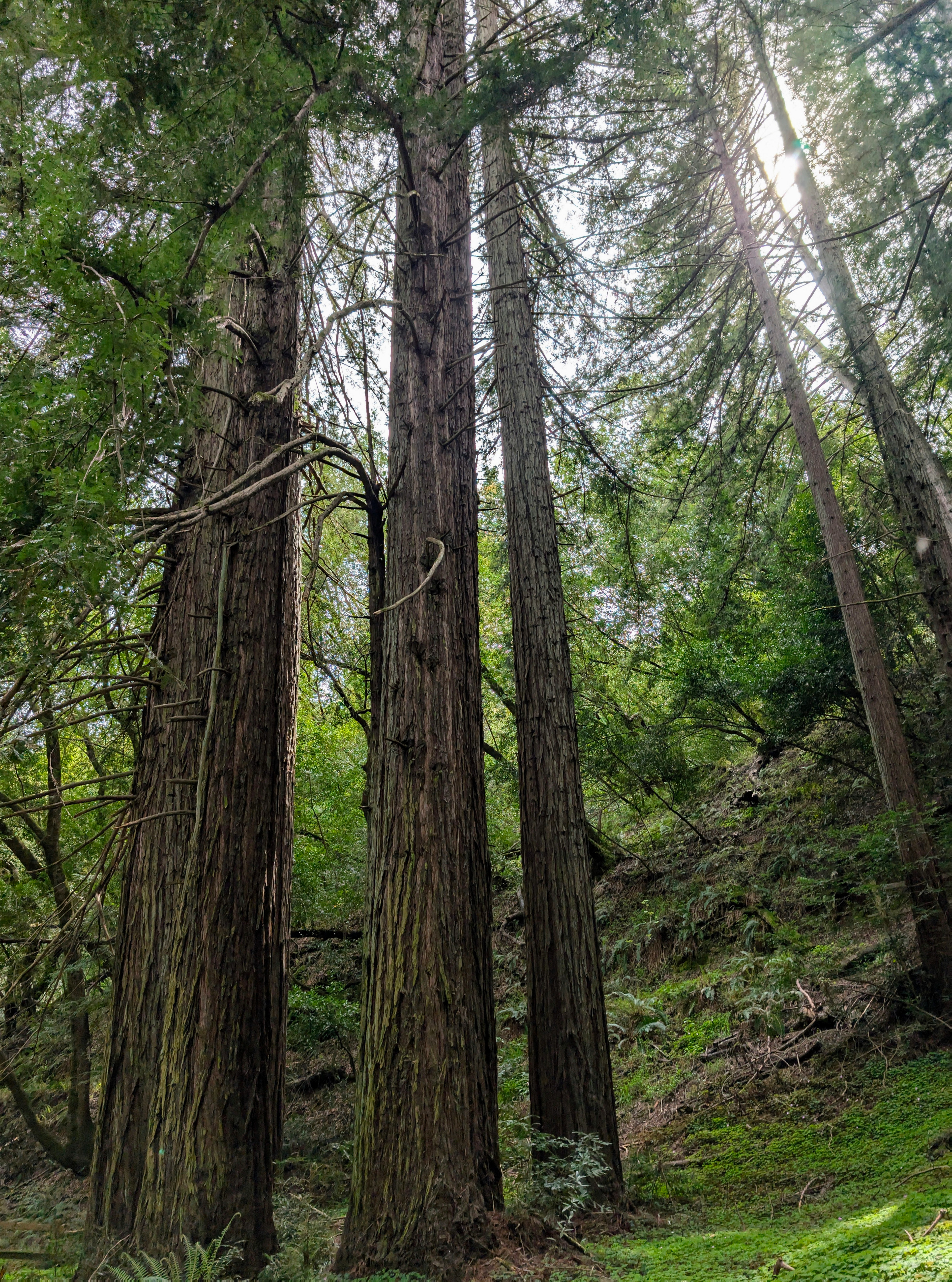
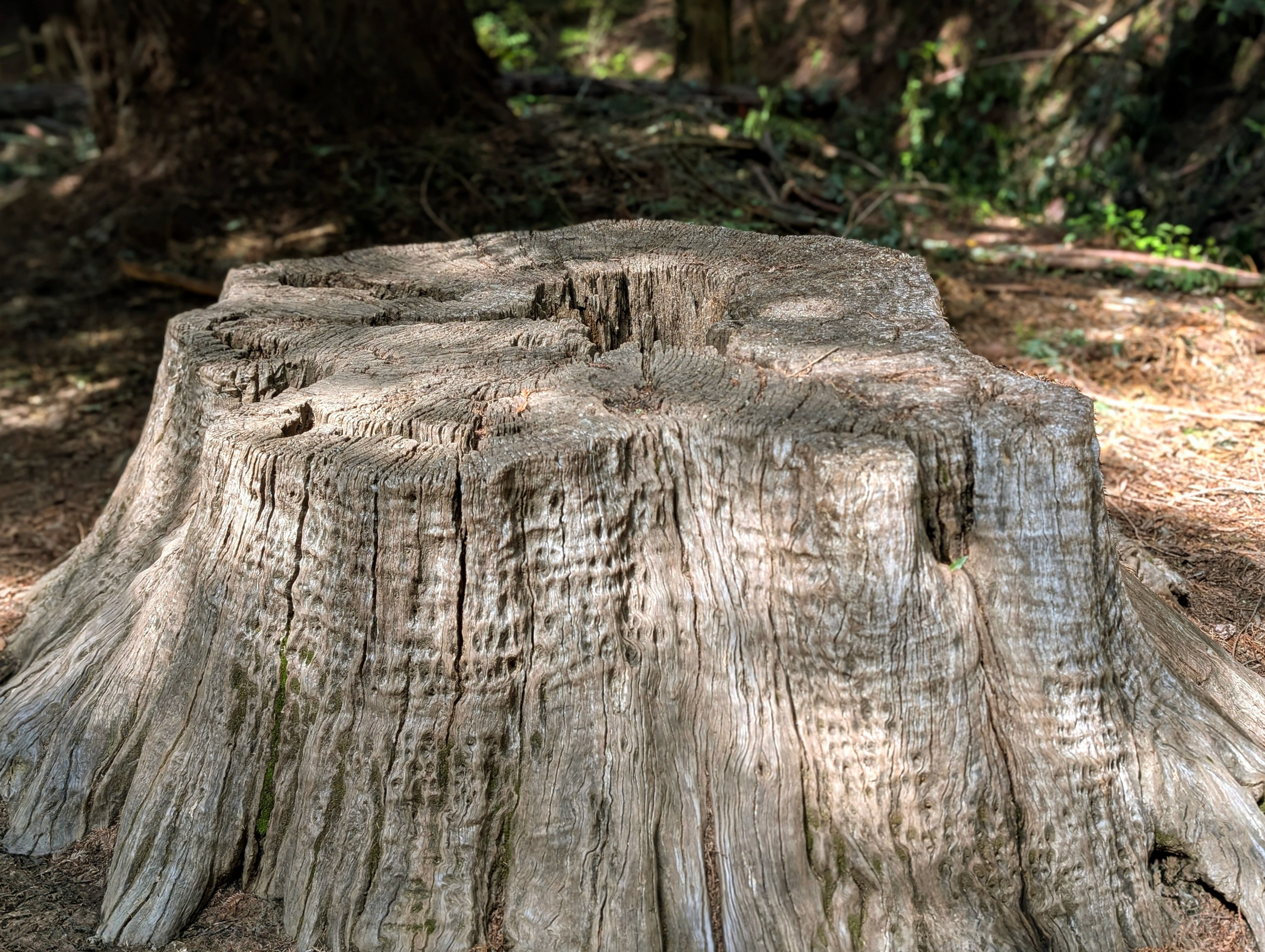
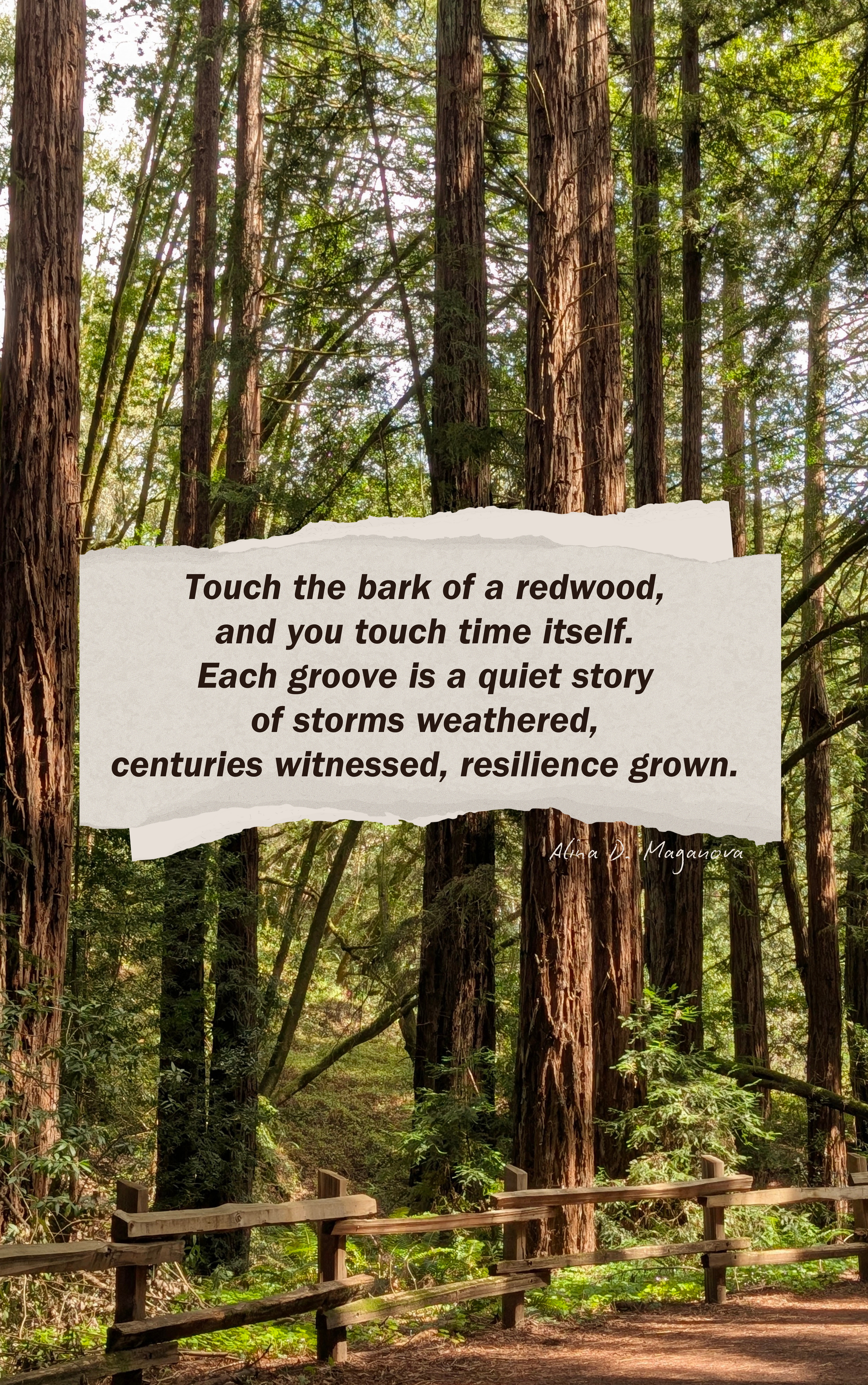
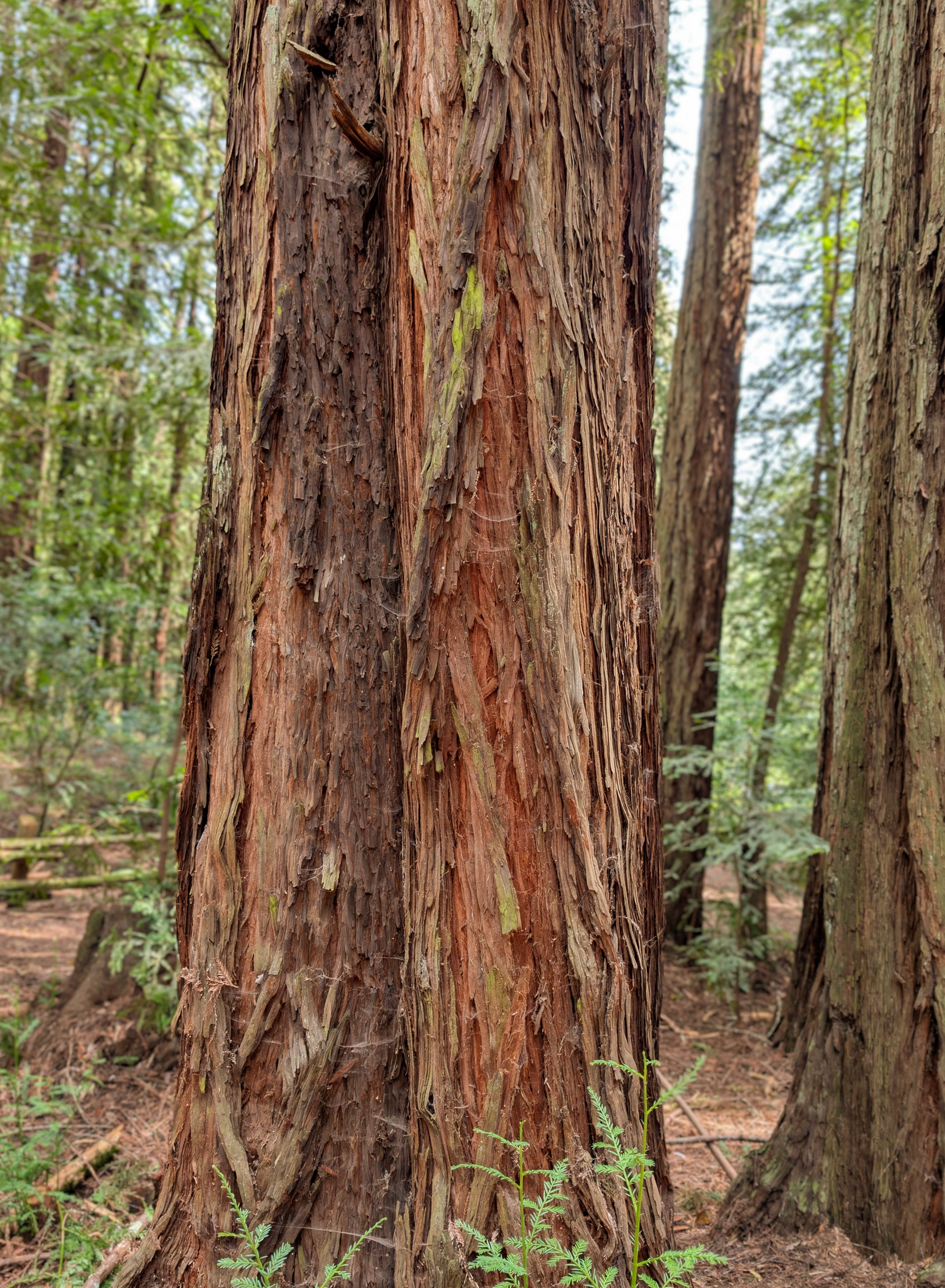
Look up. A single redwood hosts entire ecosystems: moss-draped "apartments" for owls, ferns sipping fog, beetles farming fungi. It's a vertical metropolis, buzzing with life we rarely notice. How different is this from our cities? (Spoiler: No one here pays rent.)
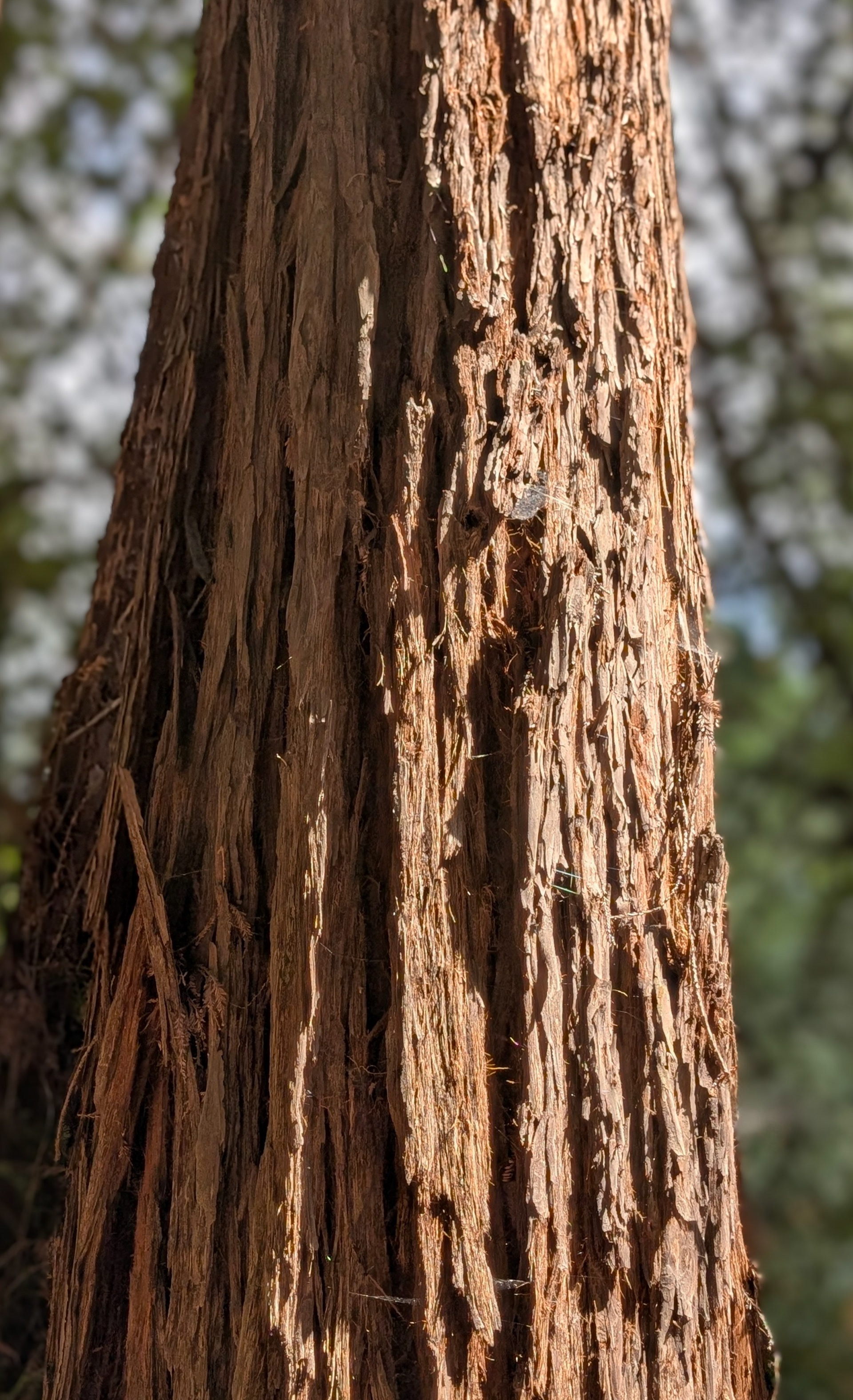
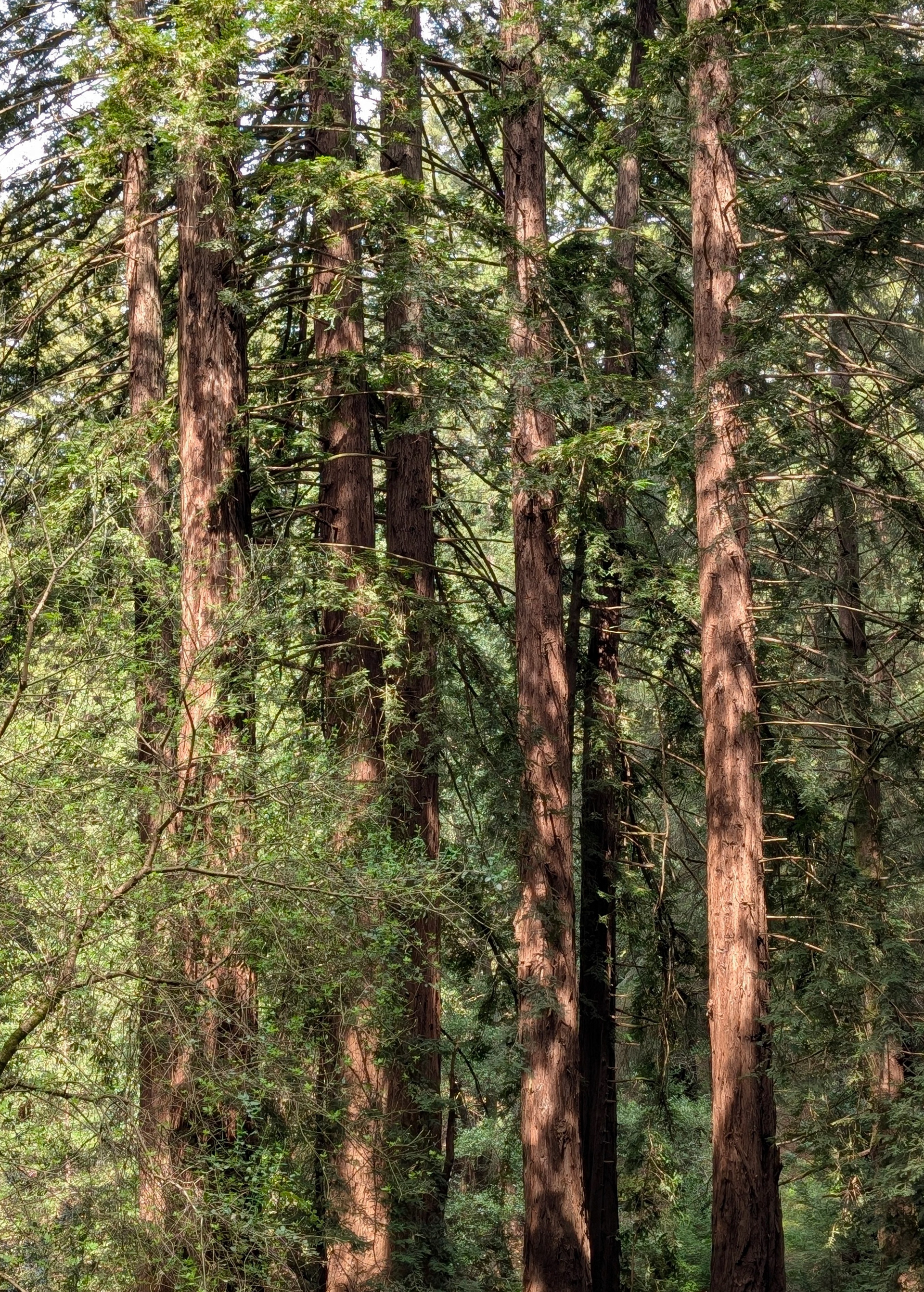
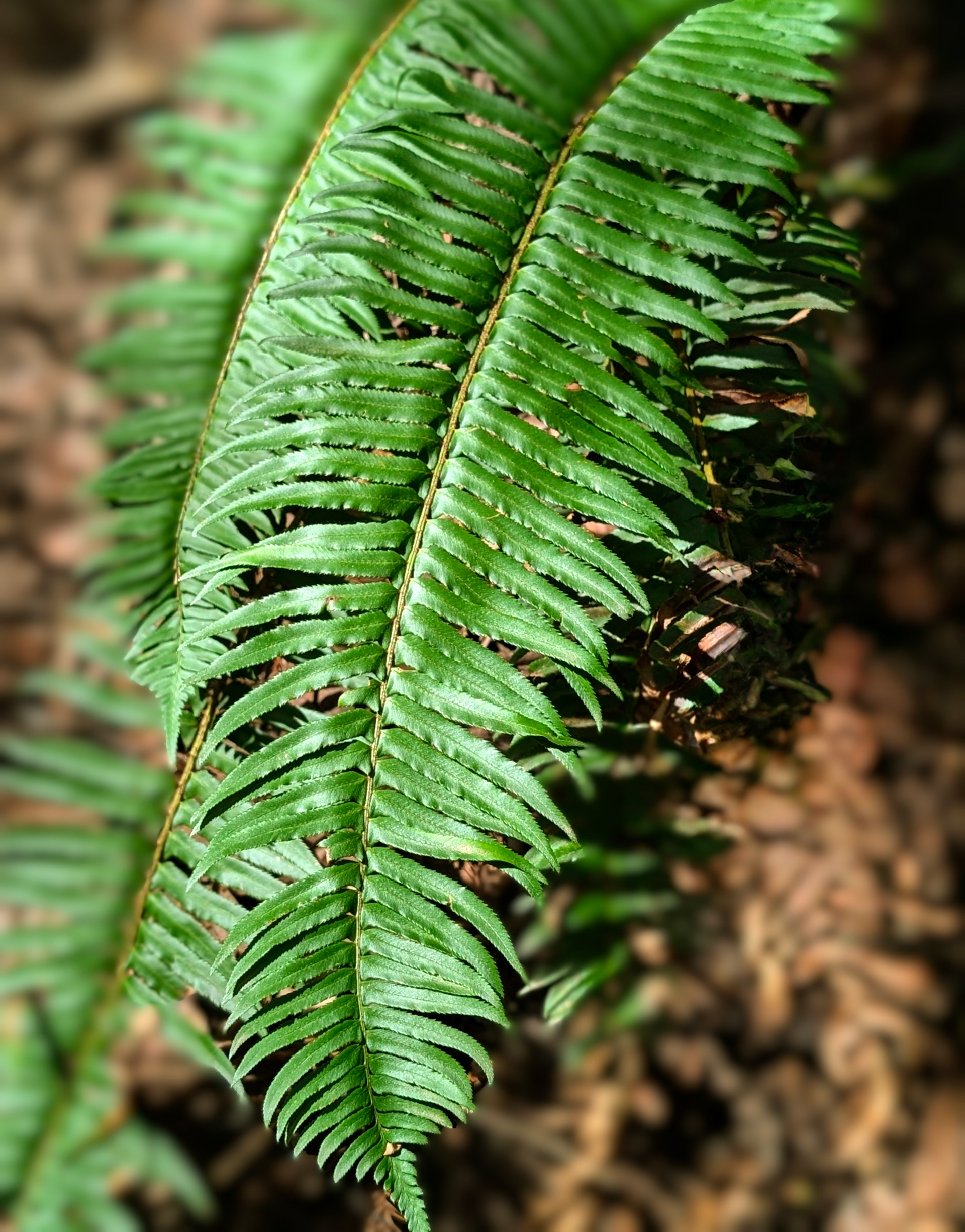
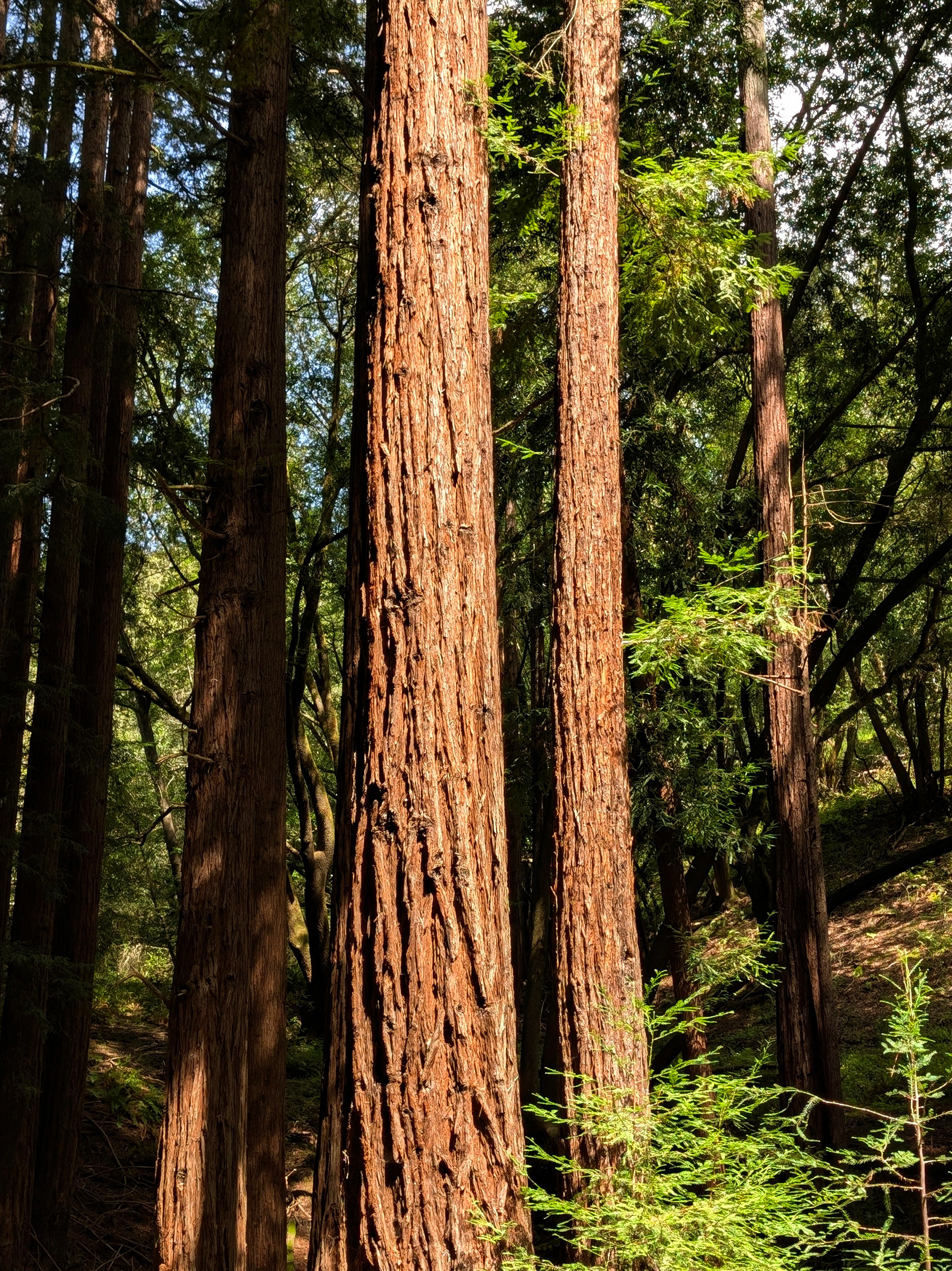
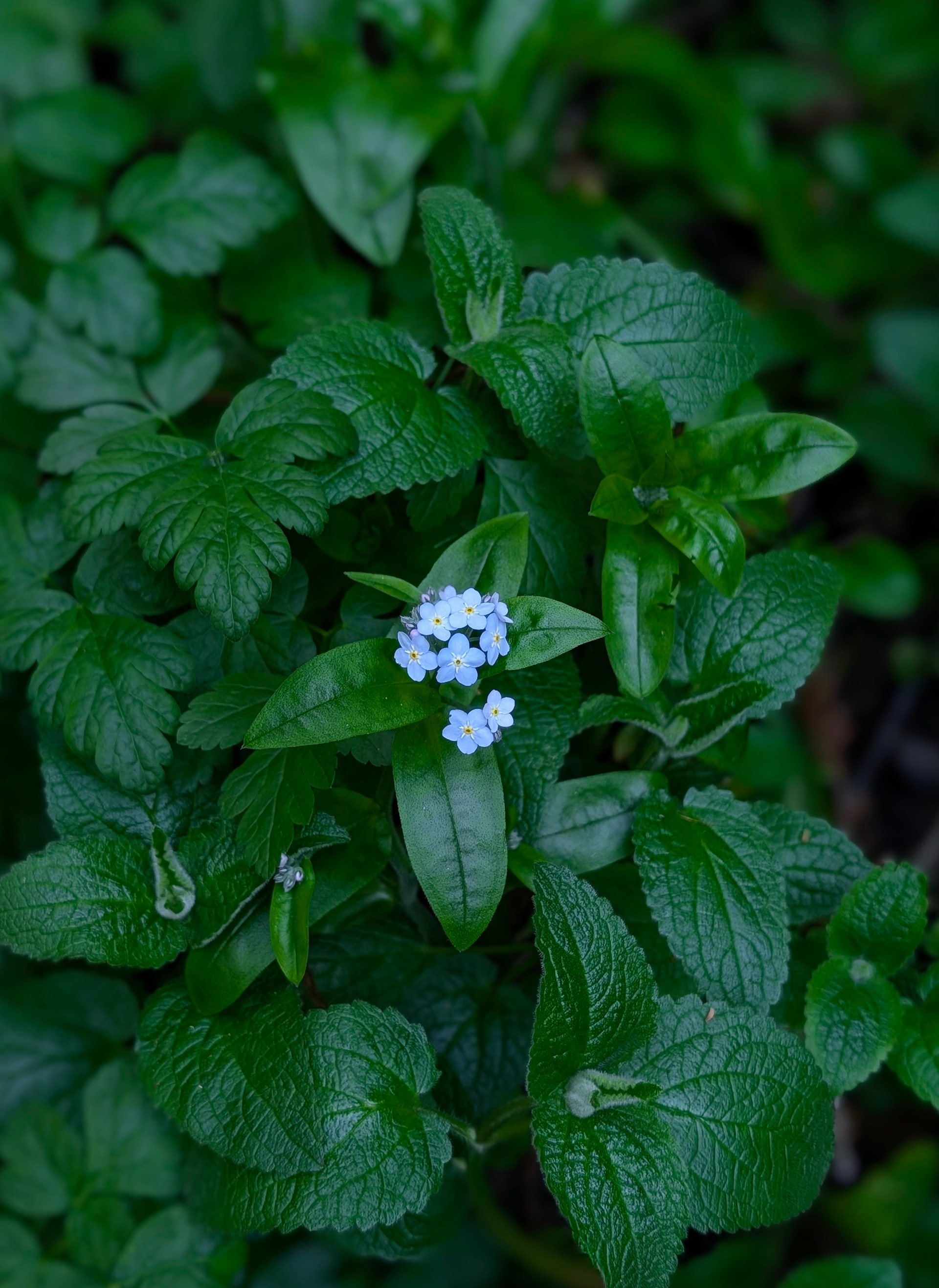
Golden fields of rapeseed glowing at sunset
You've heard of white noise, that comforting hum of static that drowns out distractions, settles anxiety, and invites calm. But have you ever listened to yellow noise?
I hadn't either, until sunset gently washed over a sprawling field of rapeseed flowers. Gold stretched endlessly toward the horizon, as if the sun itself had spilled across the landscape. And as I stood there, breathing in the honey-sweet air, I heard it clearly—the yellow noise.
It wasn't exactly sound. Or perhaps it wasn't just sound. It was the hush of fading daylight, the gentle murmur of countless rapeseed petals swaying softly in the breeze, and the delicate chirping of birds settling in for the evening, a quiet chorus blending effortlessly into the silent hum of a million tiny rapeseed blossoms whispering life into the dusk.
In that moment, with birdsong lightly punctuating the serene stillness, the rapeseed field became more than a beautiful scene, it became therapy. It gently blanketed my noisy thoughts, creating room for a peacefulness I didn't realize I'd been seeking.
That's the magic of yellow noise. Nature knows exactly the sound you need, even when it speaks softly, gently, in ways that aren't always about sound at all.
This stretch of coast is my favorite place on Earth. There's nothing quite like standing beneath the Milky Way and a sky full of stars and realizing we're part of something that doesn't keep our kind of time. Our worries, deadlines, even our biggest wins shrink against that backdrop, and in the shrinking they finally make sense.


